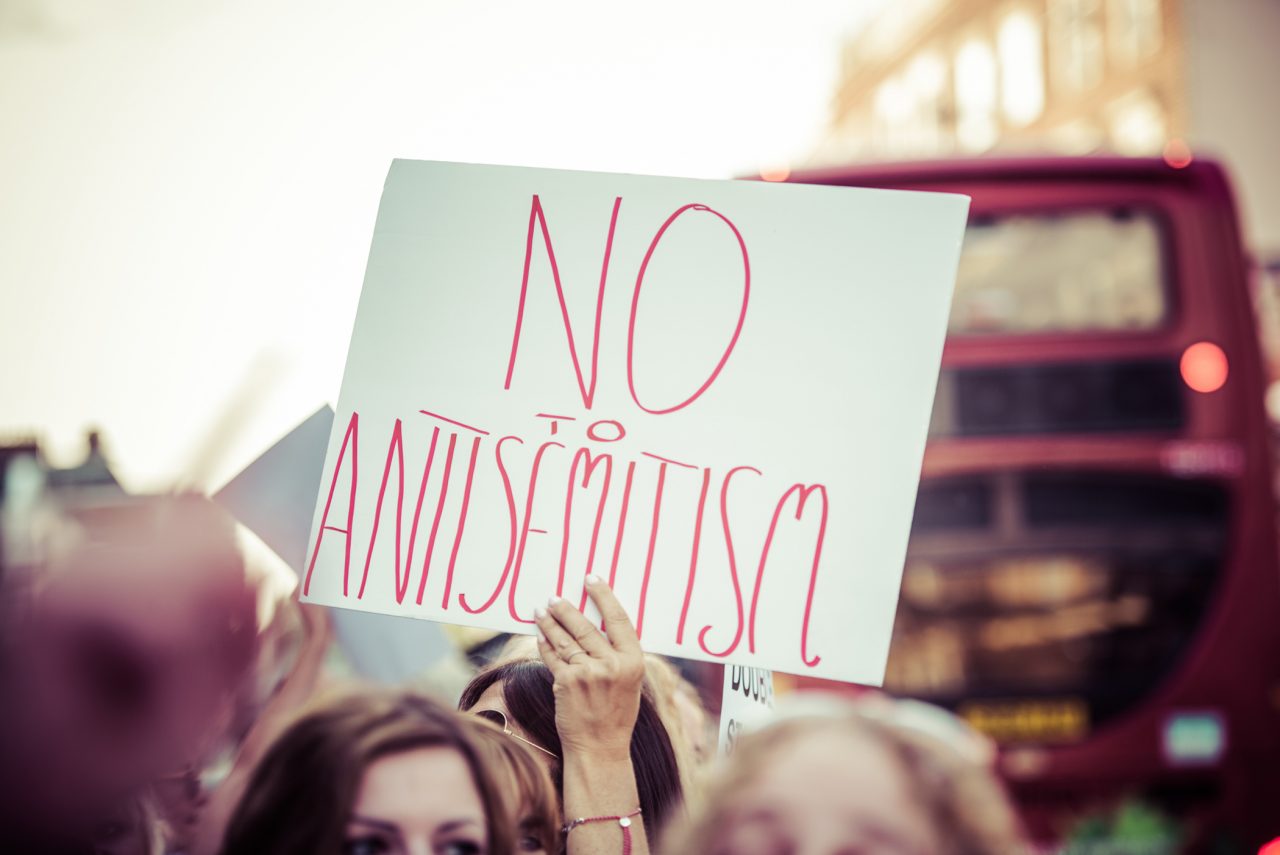HMDT Blog: Antisemitism today – Community Security Trust
As we look forward to Holocaust Memorial Day 2016, groups all across the UK are reflecting on this year's theme Don't stand by. Many events marking HMD 2016 will reflect on our own communities, examining the challenges of intolerance and hate crime that many here in the UK still face

In this guest blog, Mark Gardner from the Community Security Trust (CST) reflects on the prevelance and dangers of antisemitism (ant-Jewish hatred) within our society today. CST is the charity that protects British Jews from antisemitism and related threats.
We would all like to think that antisemitism burnt itself out in the ovens of Auschwitz-Birkenau, but history has a nasty habit of adapting and returning when the conditions suit. And so it is that today growing numbers of Jews, leading politicians and many other keen observers perceive Europe to be once again succumbing to the seductive, old and resilient virus of antisemitism.
This is not to say we believe another Holocaust is lurking around the corner, with all Jews (and their immediate descendants) being vilified, isolated and killed by starvation, mass shootings and industrialised mass murder. Rather, it is that many European Jews feel they cannot lead a normal life and that things just keep getting worse. They see what is happening now with antisemitism, extremism and other factors such as anti-Israel hatred: and they are especially concerned about what it forecasts for their children and grandchildren.
 We had hoped that antisemitism would gradually become an ugly irrelevance that we could shrug off as and when it dared arise, but instead the post 2000 trajectory has been profoundly negative. It is shown by the steady escalation of antisemitic hate crimes from the year 2000 to the present day, accompanied by a continuing Jihadist terrorist threat that demands debilitating security responses because of the harsh reality of deadly attacks upon Jewish schools, synagogues, public buildings and shops.
We had hoped that antisemitism would gradually become an ugly irrelevance that we could shrug off as and when it dared arise, but instead the post 2000 trajectory has been profoundly negative. It is shown by the steady escalation of antisemitic hate crimes from the year 2000 to the present day, accompanied by a continuing Jihadist terrorist threat that demands debilitating security responses because of the harsh reality of deadly attacks upon Jewish schools, synagogues, public buildings and shops.
Broadly speaking, there are three Jewish responses: emigration, withdrawal from public space, or standing firm regardless. Surveys show that the first two responses are increasingly common. Demographically, very few European Jewish communities have recovered to anything like their pre Holocaust level, and so contemporary antisemitism risks providing the tipping point below which many communities will no longer be viable. It may literally complete Hitler’s work in some places. Not in the sense of killing Jews, but in the sense of ending any meaningful Jewish existence.
In all of this, there is also the highly complicated importance of Israel. The levels of anti-Jewish hate crimes are bad enough anyway, but when Israel is at war, those levels increase sharply and significantly, as does the amount of criticism, scrutiny and outright hatred of Israel on demonstrations and the like. Everyone, whether Jew or Gentile, will have their own opinion on whether or not anti-Israel emotions are related to a deep lying antisemitism, but many Jews fear that it is the case; and surveys show that moves such as anti-Israel boycotts are regarded by most Jews as being antisemitic.
Whatever your personal view on the anti-Israel and antisemitism relationship, some of the matter is clear and disturbing. For example, if you want to see swastikas on public display, then go to an anti-Israel demonstration. If you want to hear that ‘Hitler was right’, then sign in to some of the anti-Israel twitter feeds. On demonstrations, social media and public meetings you will also widely encounter a supposed ‘anti-Zionism’ that copies antisemitism: only with ‘Jewish’ conspiratorial control of media, politicians and world finance, now replaced by ‘Zionist’ control of these things.
The above is not coming from neo-Nazis (although they also use the word ‘Zionist’ in those same ways). Instead, it comes from some people who self-define as anti-racist. Why does this happen? Well, it would obviously be racist and stupid to say that ‘Jews’ do such things, but people still desperately need scapegoats to explain the complicated and scary world we live in. ‘Zionists’ partly fulfil that psychological need, as ‘Jews’ used to.
Inevitably, hateful rhetoric and propaganda leads to hateful actions and violence, and with ‘anti-Zionism’, that hatred often ends up hitting Jews. After all, most Jews do self-identify as being Zionists, but in its true sense, meaning that Jews have the right to self-determination, especially in a post Holocaust world. Jews still instinctively turn to anti-racist groups for support against antisemitism, but all too often it does not come, due to anti-Zionist influence in such circles. This adds to the sense of isolation and fears for the future.
Another difficult complication is antisemitism from within Europe’s highly diverse Muslim communities. Only an idiot or a racist (or both) would say that all Muslims are antisemitic, but far too many do hold deeply worrying antisemitic attitudes. For example, a Times survey of British Muslims in 2006 found that 37% agreed the British Jewish community was a ‘legitimate target’ in ‘the ongoing struggle for justice in the Middle East’; and 46% agreed that ‘Jews are in league with the Freemasons to control the media and politics’.
Across Europe, Jews and politicians are now facing the challenge of how to honestly and constructively acknowledge, discuss and reverse these hostile attitudes from our fellow Muslim citizens: a fellow minority that itself often faces growing racist antagonism and socio-economic exclusion.
I recently presented these and similar concerns on behalf of European Jews at the first annual European Commission colloquium on antisemitism and anti-Muslim hatred. Time and again, the senior Brussels politicians replied with promises of action and words of outrage, sincerely stating that Europe without its Jews would no longer be Europe.
Sometimes from Britain it can be hard to appreciate how extensively the lessons of the Holocaust underpin the construction of today’s pan European institutions. Now, these same organisations look at the situation of modern day antisemitism, fearing that Jewish emigration rates, antisemitic hate crime statistics and related hatreds, all reveal a deep seated failure to deliver the most basic building block of the post-World War Two vision.
Finally, there is one other factor. Jews have long instinctively understood that antisemitism may begin with Jews, but it never ends with them. It both reflects and fuels underlying problems within a society. Speaking in Brussels, it seemed that the Eurocrats were fully aware of this paradigm: that they feared what this meant not only for Jews but for Europe as a whole. Indeed, looking at a continent that seems increasingly startled and dismayed by immigration, integration, nationalism and extremisms, who would disagree that antisemitism is, yet again, foretelling of further problems?
The HMDT blog highlights topics relevant to our work in Holocaust and genocide education and commemoration. We hear from a variety of guest contributors who provide a range of personal perspectives on issues relevant to them, including those who have experienced state-sponsored persecution and genocide. The views expressed are those of the author and do not necessarily represent the views of HMDT.